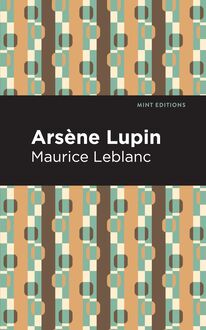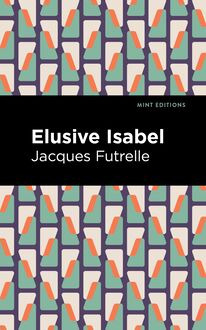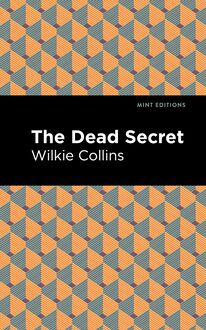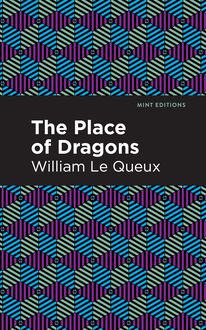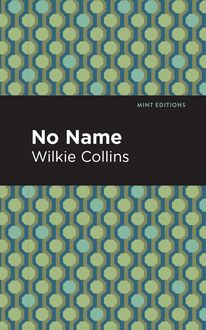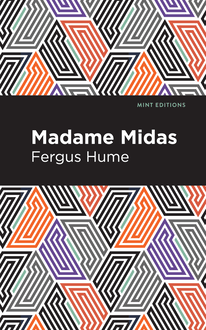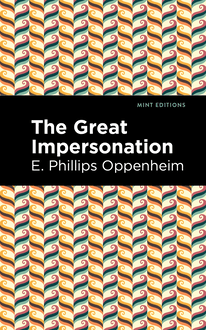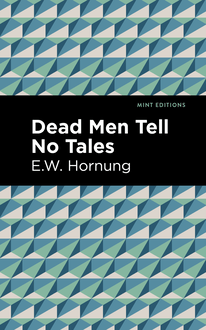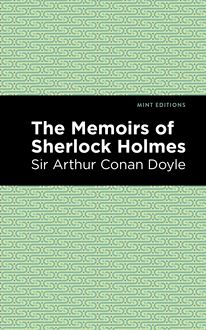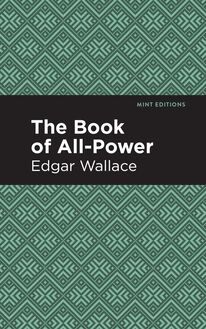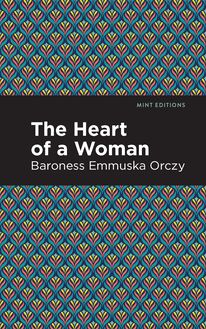-
 Univers
Univers
-
 Ebooks
Ebooks
-
 Livres audio
Livres audio
-
 Presse
Presse
-
 Podcasts
Podcasts
-
 BD
BD
-
 Documents
Documents
-
- Cours
- Révisions
- Ressources pédagogiques
- Sciences de l’éducation
- Manuels scolaires
- Langues
- Travaux de classe
- Annales de BEP
- Etudes supérieures
- Maternelle et primaire
- Fiches de lecture
- Orientation scolaire
- Méthodologie
- Corrigés de devoir
- Annales d’examens et concours
- Annales du bac
- Annales du brevet
- Rapports de stage
La lecture à portée de main
Vous pourrez modifier la taille du texte de cet ouvrage
Découvre YouScribe en t'inscrivant gratuitement
Je m'inscrisDécouvre YouScribe en t'inscrivant gratuitement
Je m'inscrisEn savoir plus
Vous pourrez modifier la taille du texte de cet ouvrage
En savoir plus

Description
In the midst of World War I, the son of a British aristocrat and daughter of an English colonel are roped into a treasonous plot. They must navigate secret agents and spies who are convinced of their guilt. A chance meeting between Catherine Abbeway and Julian Orden leads to an intricate tale of suspicion and government corruption. Catherine is the daughter of an English colonel and is targeted due to secret files in her possession. Julian obtains the documents for fear that they may incriminate Catherine and confirm her as a traitor. Julian and Catherine becomes part of a growing conspiracy fueled by both English and German powers. The Devil’s Paw is a gripping tale of romance and political intrigue. E. Phillips Oppenheim offers a compelling commentary on Europe during one of its most vulnerable times. He delivers a complex narrative driven by bold characters informed by historical events. With an eye-catching new cover, and professionally typeset manuscript, this edition of The Devil’s Paw is both modern and readable.
Sujets
Informations
| Publié par | Mint Editions |
| Date de parution | 14 mai 2021 |
| Nombre de lectures | 0 |
| EAN13 | 9781513286266 |
| Langue | English |
| Poids de l'ouvrage | 1 Mo |
Informations légales : prix de location à la page 0,0500€. Cette information est donnée uniquement à titre indicatif conformément à la législation en vigueur.
Extrait
The Devil’s Paw
E. Phillips Oppenheim
The Devil’s Paw was first published in 1920.
This edition published by Mint Editions 2021.
ISBN 9781513281247 | E-ISBN 9781513286266
Published by Mint Editions®
minteditionbooks.com
Publishing Director: Jennifer Newens
Design & Production: Rachel Lopez Metzger
Project Manager: Micaela Clark
Typesetting: Westchester Publishing Services
C ONTENTS I II III IV V VI VII VIII IX X XI XII XIII XIV XV XVI XVII XVIII XIX XX XXI XXII
I
The two men, sole occupants of the somewhat shabby cottage parlour, lingered over their port, not so much with the air of wine lovers, but rather as human beings and intimates, perfectly content with their surroundings and company. Outside, the wind was howling over the marshes, and occasional bursts of rain came streaming against the window panes. Inside at any rate was comfort, triumphing over varying conditions. The cloth upon the plain deal table was of fine linen, the decanter and glasses were beautifully cut; there were walnuts and, in a far corner, cigars of a well-known brand and cigarettes from a famous tobacconist. Beyond that little oasis, however, were all the evidences of a hired abode. A hole in the closely drawn curtains was fastened together by a safety pin. The horsehair easy-chairs bore disfiguring antimacassars, the photographs which adorned the walls were grotesque but typical of village ideals, the carpet was threadbare, the closed door secured by a latch instead of the usual knob. One side of the room was littered with golf clubs, a huge game bag and several boxes of cartridges. Two shotguns lay upon the remains of a sofa. It scarcely needed the costume of Miles Furley, the host, to demonstrate the fact that this was the temporary abode of a visitor to the Blakeney marshes in search of sport.
Furley, broad-shouldered, florid, with tanned skin and grizzled hair, was still wearing the high sea boots and jersey of the duck shooter. His companion, on the other hand, a tall, slim man, with high forehead, clear eyes, stubborn jaw, and straight yet sensitive mouth, wore the ordinary dinner clothes of civilisation. The contrast between the two men might indeed have afforded some ground for speculation as to the nature of their intimacy. Furley, a son of the people, had the air of cultivating, even clinging to a certain plebeian strain, never so apparent as when he spoke, or in his gestures. He was a Member of Parliament for a Labour constituency, a shrewd and valuable exponent of the gospel of the working man. What he lacked in the higher qualities of oratory he made up in sturdy common sense. The will-o’-the-wisp Socialism of the moment, with its many attendant “isms” and theories, received scant favour at his hands. He represented the solid element in British Labour politics, and it was well known that he had refused a seat in the Cabinet in order to preserve an absolute independence. He had a remarkable gift of taciturnity, which in a man of his class made for strength, and it was concerning him that the Prime Minister had made his famous epigram, that Furley was the Labour man whom he feared the most and dreaded the least.
Julian Orden, with an exterior more promising in many respects than that of his friend, could boast of no similar distinctions. He was the youngest son of a particularly fatuous peer resident in the neighbourhood, had started life as a barrister, in which profession he had attained a moderate success, had enjoyed a brief but not inglorious spell of soldiering, from which he had retired slightly lamed for life, and had filled up the intervening period in the harmless occupation of censoring. His friendship with Furley appeared on the surface too singular to be anything else but accidental. Probably no one save the two men themselves understood it, and they both possessed the gift of silence.
“What’s all this peace talk mean?” Julian Orden asked, fingering the stem of his wineglass.
“Who knows?” Furley grunted. “The newspapers must have their daily sensation.”
“I have a theory that it is being engineered.”
“Bolo business, eh?”
Julian Orden moved in his place a little uneasily. His long, nervous fingers played with the stick which stood always by the side of his chair.
“You don’t believe in it, do you?” he asked quietly.
Furley looked straight ahead of him. His eyes seemed caught by the glitter of the lamplight upon the cut-glass decanter.
“You know my opinion of war, Julian,” he said. “It’s a filthy, intolerable heritage from generations of autocratic government. No democracy ever wanted war. Every democracy needs and desires peace.”
“One moment,” Julian interrupted. “You must remember that a democracy seldom possesses the imperialistic spirit, and a great empire can scarcely survive without it.”
“Arrant nonsense!” was the vigorous reply. “A great empire, from hemisphere to hemisphere, can be kept together a good deal better by democratic control. Force is always the arriere pensee of the individual and the autocrat.”
“These are generalities,” Julian declared. “I want to know your opinion about a peace at the present moment.”
“Not having any, thanks. You’re a dilettante journalist by your own confession, Julian, and I am not going to be drawn.”
“There is something in it, then?”
“Maybe,” was the careless admission. “You’re a visitor worth having, Julian. ’ 70 port and homegrown walnuts! A nice little addition to my simple fare! Must you go back to-morrow?”
Julian nodded.
“We’ve another batch of visitors coming,—Stenson amongst them, by the bye.”
Furley nodded. His eyes narrowed, and little lines appeared at their corners.
“I can’t imagine,” he confessed. “What brings Stenson down to Maltenby. I should have thought that your governor and he could scarcely spend ten minutes together without quarrelling!”
“They never do spend ten minutes together alone,” Julian replied drily. “I see to that. Then my mother, you know, has the knack of getting interesting people together. The Bishop is coming, amongst others. And, Furley, I wanted to ask you—do you know anything of a young woman—she is half Russian, I believe—who calls herself Miss Catherine Abbeway?”
“Yes, I know her,” was the brief rejoinder.
“She lived in Russia for some years, it seems,” Julian continued. “Her mother was Russian—a great writer on social subjects.”
Furley nodded.
“Miss Abbeway is rather that way herself,” he remarked. “I’ve heard her lecture in the East End. She has got hold of the woman’s side of the Labour question as well as any one I ever came across.”
“She is a most remarkably attractive young person,” Julian declared pensively.
“Yes, she’s good-looking. A countess in her own right, they tell me, but she keeps her title secret for fear of losing influence with the working classes. She did a lot of good down Poplar way. Shouldn’t have thought she’d have been your sort, Julian.”
“Why?”
“Too serious.”
Julian smiled—rather a peculiar, introspective smile.
“I, too, can, be serious sometimes,” he said.
His friend thrust his hands into his trousers pocket and, leaning back in his chair, looked steadfastly at his guest.
“I believe you can, Julian,” he admitted. “Sometimes I am not quite sure that I understand you. That’s the worst of a man with the gift for silence.”
“You’re not a great talker yourself,” the younger man reminded his host.
“When you get me going on my own subject,” Furley remarked, “I find it hard to stop, and you are a wonderful listener. Have you got any views of your own? I never hear them.”
Julian drew the box of cigarettes towards him.
“Oh, yes, I’ve views of my own,” he confessed. “Some day, perhaps, you shall know what they are.”
“A man of mystery!” his friend jeered good-naturedly.
Julian lit his cigarette and watched the smoke curl upward.
“Let’s talk about the duck,” he suggested.
The two men sat in silence for some minutes. Outside, the storm seemed to have increased in violence. Furley rose, threw a log on to the fire and resumed his place.
“Geese flew high,” he remarked.
“Too high for me,” Julian confessed.
“You got one more than I did.”
“Sheer luck. The outside bird dipped down to me.”
Furley filled his guest’s glass and then his own.
“What on earth have you kept your shooting kit on for?” the latter asked, with lazy curiosity.
Furley glanced down at his incongruous attire and seemed for a moment ill at ease.
“I’ve got to go out presently,” he announced.
Julian raised his eyebrows.
“Got to go out?” he repeated. “On a night like this? Why, my dear fellow—”
He paused abruptly. He was a man of quick perceptions, and he realised his host’s embarrassment. Nevertheless, there was an awkward pause in the conversation. Furley rose to his feet and frowned. He fetched a jar of tobacco from a shelf and filled his pouch deliberately:
“Sorry to seem mysterious, old chap,” he said. “I’ve just a bit of a job to do. It doesn’t amount to anything, but—well, it’s the sort of affair we don’t talk about much.”
“Well, you’re welcome to all the amusement you’ll get out of it, a night like this.”
Furley laid down his pipe, ready-filled, and drank off his port.
“There isn’t much amusement left in the world, is there, just now?” he remarked gravely.
“Very little indeed. It’s three years since I handled a shotgun before to-night.”
“You’ve really chucked the censoring?”
“Last week. I’ve had a solid year at it.”
“Fed up?”
“Not exactly that. My own work accumulated so.”
“Briefs coming along, eh?”
“I’m a sort of hack journalist as well, as you reminded me just now,” Julian explained a little evasively.
“I wonder you stuck at the censoring so long. Isn’t it terribly tedious?”
“Sometimes. Now and then we come across interesting things, though. For instance, I discovered a most original cipher the other day.”
“Did it lead to anything?” Furley asked curiously.
“Not at present. I discovered it, studying a telegram from Norway. It was addressed to a perfectly re
-
 Univers
Univers
-
 Ebooks
Ebooks
-
 Livres audio
Livres audio
-
 Presse
Presse
-
 Podcasts
Podcasts
-
 BD
BD
-
 Documents
Documents
-
Jeunesse
-
Littérature
-
Ressources professionnelles
-
Santé et bien-être
-
Savoirs
-
Education
-
Loisirs et hobbies
-
Art, musique et cinéma
-
Actualité et débat de société
-
Jeunesse
-
Littérature
-
Ressources professionnelles
-
Santé et bien-être
-
Savoirs
-
Education
-
Loisirs et hobbies
-
Art, musique et cinéma
-
Actualité et débat de société
-
Actualités
-
Lifestyle
-
Presse jeunesse
-
Presse professionnelle
-
Pratique
-
Presse sportive
-
Presse internationale
-
Culture & Médias
-
Action et Aventures
-
Science-fiction et Fantasy
-
Société
-
Jeunesse
-
Littérature
-
Ressources professionnelles
-
Santé et bien-être
-
Savoirs
-
Education
-
Loisirs et hobbies
-
Art, musique et cinéma
-
Actualité et débat de société
- Cours
- Révisions
- Ressources pédagogiques
- Sciences de l’éducation
- Manuels scolaires
- Langues
- Travaux de classe
- Annales de BEP
- Etudes supérieures
- Maternelle et primaire
- Fiches de lecture
- Orientation scolaire
- Méthodologie
- Corrigés de devoir
- Annales d’examens et concours
- Annales du bac
- Annales du brevet
- Rapports de stage
